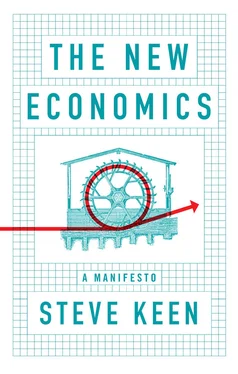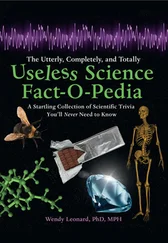a new scientific truth does not triumph by convincing its opponents and making them see the light, but rather because its opponents eventually die, and a new generation grows up that is familiar with it. (Planck 1949, pp. 33–4)
Here, economics is different, largely because economic ‘experiments’ are different to scientific ones, in that they are historical events, whereas scientific experiments are deliberate attempts to confirm a theory – some of which fail. The Michelson–Morley experiment attempted to measure the speed of the Earth relative to ‘the aether’, the medium that scientists then thought allowed light to travel through space. The experiment found that there was no discernible relative motion, which implied that the aether did not exist. This unexpected discovery led to the rejection of the aether theory, and ultimately the adoption of the Theory of Relativity. This experiment can be repeated at any time – and it has been repeated, with increasingly more sophisticated methods – and the result is always the same. There is no way of getting away from it and returning to a pre-Relativity science, and nor is there any desire to do so by post-Relativity physicists.
In economics, however, it is possible to get away from the failure of theory to play out as expected in reality. An event like the GFC occurs only once in history, and it cannot be reproduced to allow old and new theories to be tested against it. As time goes on, the event itself fades from memory. History can help sustain a memory, but economic history is taught at very few universities. Economists don’t learn from history because they’re not taught it in the first place.
The economy is also a moving target, whereas the physical world, relatively speaking, is a stationary one. When a clash between theoretical prediction and empirical results occurs in physics, the state of unease persists until a theoretical resolution is found. But in economics, though a crisis like the GFC can cause great soul searching when it occurs, the economy changes over time, and the focus of attention shifts.
Finally, unlike physicists, economists do want to return to pre-crisis economic theory. Events like the GFC upset the ‘totem’ that characterizes Neoclassical economics, the ‘supply and demand’ diagram (Leijonhufvud 1973), 4in which the intersecting lines determine both equilibrium price and equilibrium quantity, and in which any government intervention necessarily makes things worse, by moving the market away from this equilibrium point. This image of a self-regulating and self-stabilizing market system is a powerful intellectual, and even emotional, anchor for mainstream economists.
These factors interact to make economics extremely resistant to fundamental change. In physics, anomalies like the clash between the results of the Michelson–Morley experiment and the predictions of pre-Relativity physics persist until the theory changes, because the experimental result is eternal. The anomaly doesn’t go away, but the theory that it contradicted dies with the pre-anomaly scientists. Try as they might, they can’t recruit adherents to the old theory amongst new students, because the students are aware of the anomaly, and won’t accept any theory that doesn’t resolve it.
In economics, anomalies are gradually forgotten, and new students can be recruited to preserve and extend the old beliefs, and to paper over anomalous phenomena. School and university economics courses become ways of reinforcing the Neoclassical paradigm, rather than fonts from which new theories spring in response to failures of the dominant paradigm.
In physics, intellectual crises are intense but, relatively speaking, short-lived. The crisis persists until a new theoretical breakthrough resolves it – regardless of whether that breakthrough persuades existing physicists (which as a rule, it doesn’t). The ‘anomaly’, the empirical fact that fundamentally contradicts the existing paradigm, is like the grain of sand in an oyster that ultimately gives birth to a pearl: the irritation cannot be avoided, so it must be dealt with (Woit 2006). 5It is the issue that believers in the existing paradigm know they cannot resolve – though it may take time for that realization to sink in, as various extensions of the existing paradigm are developed, each of which proves to be partially effective but inherently flawed. It is the thing young scientists are most aware of, the issue they want to be the one to resolve. As their lecturers who stick to the old paradigm age, the students take in the old ideas, but they are actively looking for where they are wrong, and how these contradictions might be resolved.
Once a solution is found, the protestations of the necessarily older, ageing, sometimes retired and often deceased champions of the previous paradigm mean nothing. Ultimately, all the significant positions in a university department are filled by scientists who are committed to the new paradigm. Then, as the new paradigm develops, it first undergoes a period of rapid extension, but ultimately confronts its own critical anomaly, and the science falls into crisis once more, as philosopher of science Thomas Kuhn (Kuhn 1970) explains. 6
This is a punctuated path of development. It starts with the development of an initial paradigm by a great thinker, around whom a community of followers coalesces. They extend the core insights and thus form a new paradigm in that science. Initially, they enjoy a glorious period of the dance between observation and theory, where observations confirm and extend the paradigm. But finally, some prediction the theory makes is contradicted by observation. After a period of denial and dismay, the science settles into an unhappy peace: the paradigm is taught, but with less enthusiasm, the anomaly is noted, and the various within-paradigm attempts to resolve it are discussed. Then, out of somewhere, whether from a Professor (Planck) or a patents clerk (Einstein), a resolution comes. Rinse and repeat.
Those punctuations never occur in economics, and because the punctuations don’t occur, neither does the kind of revolutionary change in the discipline that Kuhn vividly describes for physics and astronomy. Economics is, therefore, not a science . As Kuhn explains brilliantly, a real science goes through a process of paradigm change via a shift from what he calls ‘normal science’, to a scientific revolution triggered by a fundamental anomaly and resolved by a new paradigm, after which normal science resumes once more with the new paradigm. Economics has experienced many theoretical and empirical crises since the Neoclassical school became dominant in the 1870s, but none have resulted in a revolution to a new paradigm akin to the shift from Ptolemaic to Copernican astronomy.
An economic crisis, when it strikes, does disturb the mainstream. Their textbook advice – if the crisis is empirical rather than theoretical – is thrown out of the window by policymakers while the crisis lasts. Mainstream economists react defensively – which is not significantly different from what happens in a science. They can justify the extraordinary policy measures undertaken by the unexpected nature of the crisis, but then treat the contradiction the crisis poses for their theory as an aberration, which can be handled by admitting some modifications to peripheral aspects of the core theory. One example is the concept of ‘bounded rationality’ promoted by Joe Stiglitz (Stiglitz 2011, 2018). This can be invoked to say that, if everyone were strictly rational, then the problem would not have arisen, but because of ‘bounded rationality’, the general principle didn’t apply and, in this instance, a deviation from policies recommended by the pure theoretical canon is warranted.
Minor modifications are made to the Neoclassical paradigm, but fundamental aspects of it remain sacrosanct. Again, this is comparable to the reactions to an anomaly by adherents to an existing paradigm in a science.
Читать дальше












